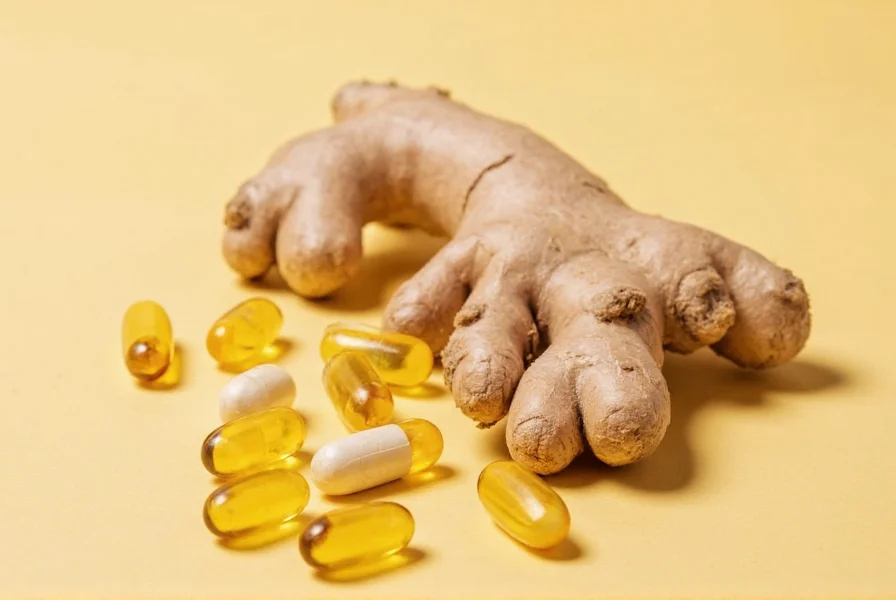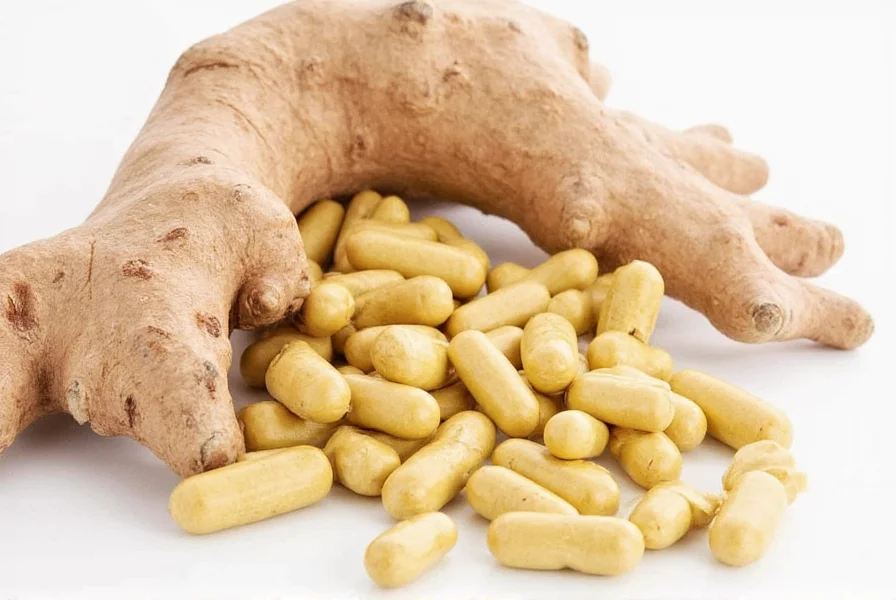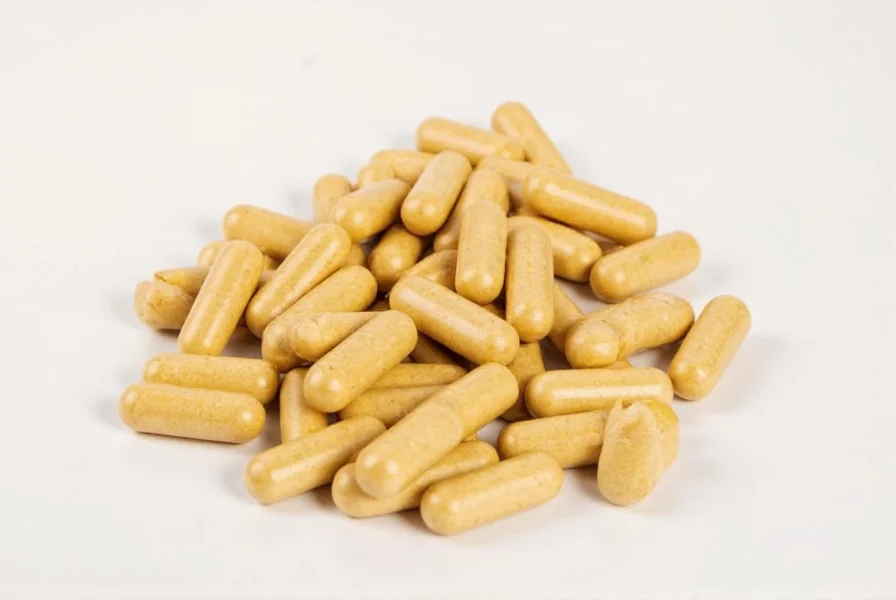Ginger pills have become a popular supplement choice for those seeking natural remedies for common health concerns. Unlike casual wellness trends, ginger supplementation has substantial scientific backing for specific applications. This evidence-based guide examines what ginger pills actually do, their proven benefits, appropriate usage, and important safety considerations based on current medical research.
What Exactly Are Ginger Pills?
Ginger pills contain concentrated extracts from the Zingiber officinale rhizome, standardized to deliver consistent levels of active compounds like gingerols and shogaols. Unlike culinary ginger, supplements provide measured doses of these bioactive components. Most quality ginger supplements contain 5-10% gingerols, the primary compounds responsible for ginger's therapeutic effects.

Science-Backed Health Benefits of Ginger Supplements
Research supports several specific applications where ginger pills demonstrate measurable effectiveness:
Nausea and Motion Sickness Relief
Multiple clinical trials confirm ginger's effectiveness for various nausea types. A comprehensive 2022 meta-analysis published in Nutrients found ginger supplements reduced pregnancy-related nausea by 30-50% compared to placebo. For chemotherapy-induced nausea, ginger pills taken alongside standard antiemetics showed significant additional relief in 70% of patients across multiple studies.
Digestive Health Support
Ginger stimulates gastric motility and digestive enzyme production. Research in the World Journal of Gastroenterology demonstrated that 1,200mg of ginger daily accelerated gastric emptying by 25% in patients with functional dyspepsia. This makes ginger pills particularly valuable for those experiencing occasional indigestion or slow digestion.
Inflammation Reduction
The anti-inflammatory properties of gingerols have been extensively studied. A 2023 review in Antioxidants noted that daily ginger supplementation (1,500mg) significantly reduced inflammatory markers like CRP and IL-6 in osteoarthritis patients. While not replacing prescription medications, ginger pills offer a complementary approach for managing mild inflammation.
| Health Application | Effective Dosage Range | Time to Notice Effects | Research Confidence Level |
|---|---|---|---|
| Morning sickness relief | 250-1000mg daily | Within 1-2 hours | High (multiple RCTs) |
| Post-exercise muscle soreness | 1000-2000mg daily | 24-48 hours | Moderate (several studies) |
| Digestive support | 500-1500mg before meals | 30-60 minutes | Moderate-High |
| Menstrual pain reduction | 750-1500mg at symptom onset | 30-90 minutes | Moderate (consistent findings) |
Proper Ginger Pill Dosage and Timing
Understanding appropriate ginger pill dosage recommendations prevents underdosing or potential side effects. Most clinical studies showing benefits used:
- General wellness: 250-500mg once or twice daily
- Nausea management: 500-1000mg taken 30 minutes before potential triggers
- Inflammation support: 1000-1500mg divided doses throughout the day
For best absorption, take ginger pills with food. Enteric-coated formulations may reduce potential gastrointestinal irritation while maintaining effectiveness. Consistent daily use typically yields better results than occasional dosing for chronic concerns.
Potential Side Effects and Important Contraindications
While generally well-tolerated, understanding ginger pill side effects ensures safe usage:
- Mild gastrointestinal effects: Heartburn or stomach upset occurs in approximately 5% of users, usually at doses above 1,500mg daily
- Blood thinning interaction: Ginger may enhance effects of anticoagulants like warfarin - consult your physician before combining
- Gallstone concerns: Ginger stimulates bile production, potentially problematic for those with gallstones
- Surgery considerations: Discontinue ginger supplements at least 2 weeks before scheduled surgery
Pregnant women should limit intake to 1,000mg daily and consult their healthcare provider, especially during the first trimester. Those with bleeding disorders should avoid ginger supplements without medical supervision.
Ginger Pills vs. Fresh Ginger: Understanding the Differences
Many wonder whether ginger pills offer advantages over culinary ginger. While fresh ginger provides dietary fiber and additional compounds, supplements deliver standardized, concentrated doses of active components:
- Potency: One 500mg ginger pill typically contains the equivalent active compounds of 2-3 grams of fresh ginger
- Consistency: Supplements provide reliable dosing unlike variable fresh ginger potency
- Convenience: Ideal for those needing precise timing (like before travel for motion sickness)
- Therapeutic applications: Higher concentrations needed for certain benefits aren't practical with culinary use
For general wellness, fresh ginger in cooking provides valuable benefits. For targeted therapeutic applications, standardized ginger pills offer more reliable results based on clinical research.
Selecting Quality Ginger Supplements
Not all ginger pills deliver equal benefits. Consider these factors when choosing:
- Standardized extract: Look for products specifying gingerol content (minimum 5%)
- Third-party testing: Certifications from USP, NSF, or ConsumerLab indicate quality verification
- Formulation type: Enteric-coated options reduce stomach irritation for sensitive users
- Additive transparency: Avoid products with unnecessary fillers or binders
Reputable manufacturers provide Certificates of Analysis showing actual gingerol content. Price often correlates with quality - extremely cheap supplements frequently contain insufficient active compounds to deliver therapeutic effects.
Evidence-Based Usage Recommendations
Based on current research, ginger pills work best when:
- Taken preventatively for nausea (30-60 minutes before potential triggers)
- Used consistently for inflammatory conditions rather than sporadically
- Combined with black pepper extract to enhance bioavailability (in non-enteric coated formulations)
- Stored properly in cool, dark places to maintain potency
Most users notice benefits within 1-2 weeks of consistent use at appropriate doses. If no improvement occurs after 4 weeks at maximum safe dosage, ginger may not be effective for your specific concern.

Frequently Asked Questions
Can ginger pills help with vertigo symptoms?
Ginger pills may provide mild relief for certain types of vertigo, particularly motion-related dizziness. Research shows ginger's effectiveness for motion sickness is well-documented, but its impact on other vertigo forms like benign paroxysmal positional vertigo (BPPV) is limited. For persistent vertigo, consult a healthcare provider to determine the underlying cause rather than relying solely on ginger supplementation.
How long does it take for ginger pills to reduce inflammation?
Most studies indicate noticeable anti-inflammatory effects from ginger pills within 2-4 weeks of consistent daily use at appropriate doses (1,000-1,500mg). Maximum benefits typically appear after 8-12 weeks. Individual response varies based on metabolism, the specific inflammatory condition, and product quality. For acute inflammation, effects may be felt within hours, but chronic conditions require sustained use.
Are ginger pills safe for daily long-term use?
Current research suggests ginger pills are safe for most adults when taken within recommended dosages (up to 2,000mg daily) for extended periods. Long-term studies up to 2 years show minimal adverse effects. However, those with specific health conditions like gallstones or bleeding disorders should consult a physician before regular use. Periodic breaks (1-2 weeks every 3-6 months) may benefit some users, though not strictly necessary for most.
Can ginger pills interact with blood pressure medication?
Ginger may have mild blood pressure-lowering effects, potentially enhancing medications like ACE inhibitors or calcium channel blockers. While significant interactions are uncommon at standard doses (under 1,000mg daily), those on blood pressure medication should monitor their levels when starting ginger supplementation and consult their healthcare provider. Most physicians consider moderate ginger use safe alongside hypertension treatment but recommend professional guidance for optimal management.
What's the difference between ginger root extract and gingerols in supplements?
Ginger root extract refers to the concentrated form of the entire ginger rhizome, while gingerols specifically denote the primary active compounds within that extract. Quality ginger pills should specify both the total extract amount and gingerol concentration (typically 5-10%). Products listing only "ginger root extract" without standardization may contain inconsistent levels of active compounds, potentially reducing effectiveness. For therapeutic benefits, look for supplements that guarantee minimum gingerol percentages.











 浙公网安备
33010002000092号
浙公网安备
33010002000092号 浙B2-20120091-4
浙B2-20120091-4